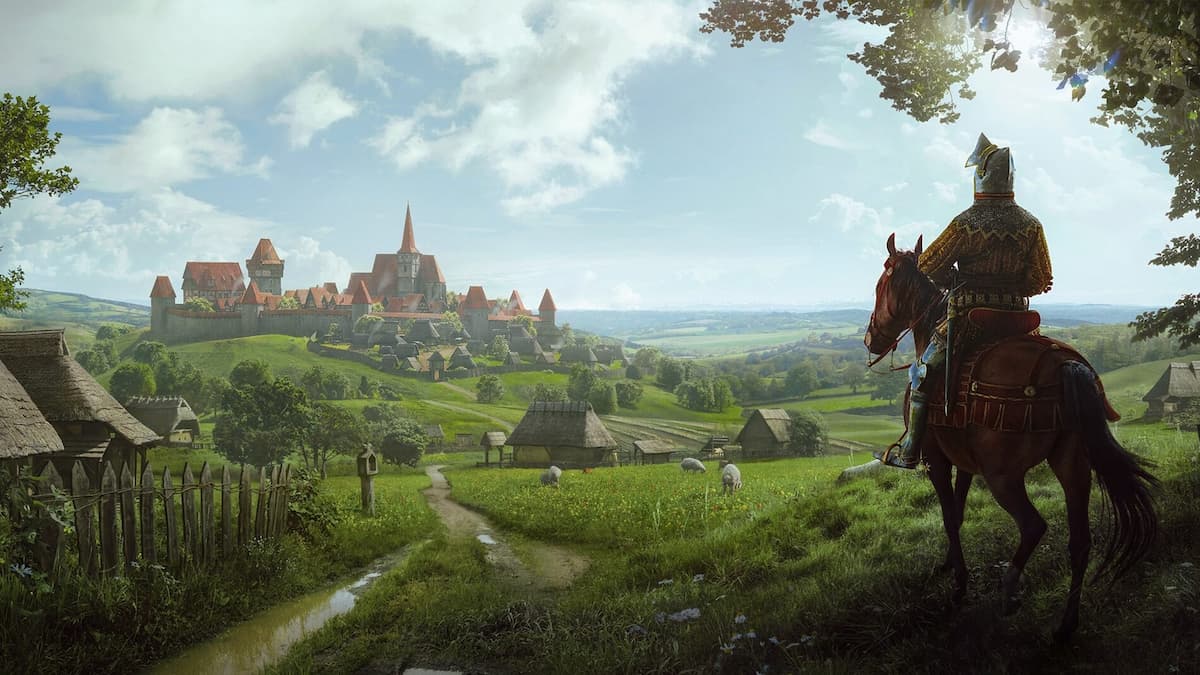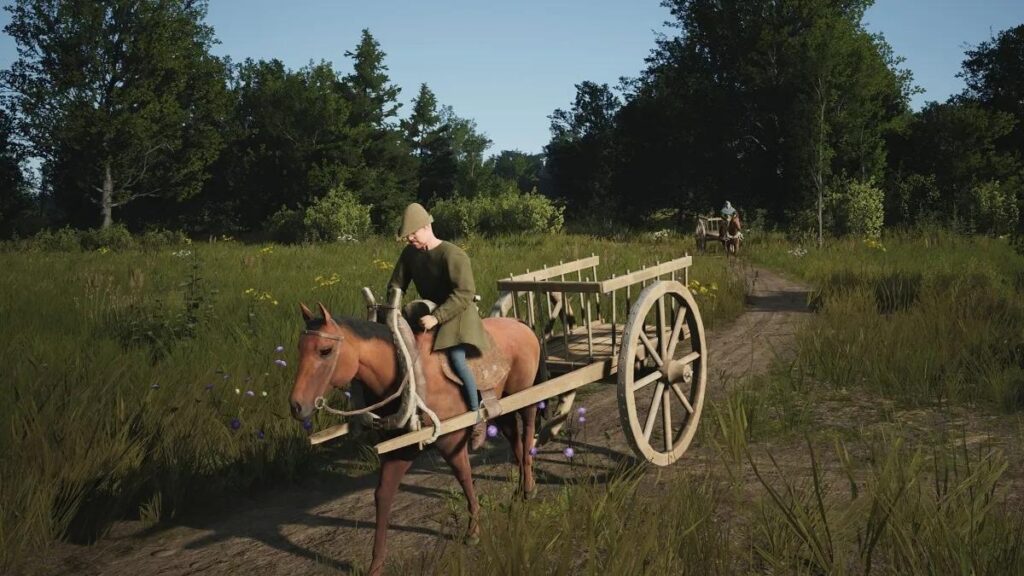
Image source: Hooded Horse
Mastering trade is important for the growth and sustainability of your settlement. Trading enables you to acquire scarce resources, sell surplus goods for profit, and maintain a balanced economy—all without expanding your territorial boundaries. Here’s how to trade in Manor Lords, including tips on infrastructure and optimizing your trade strategies to ensure your medieval township thrives.
Trading in Manor Lords
The first step in establishing a successful trading system in Manor Lords is building the necessary structures. You’ll need to build a Trading Post, which is the primary hub for all trading activities. This facility requires four pieces of timber to build and must be manned by a family. It’s where you manage and execute trades for the various resources essential to your settlement’s development.
If you plan to deal in livestock, a separate Livestock Trading Post is necessary. This operates similarly to the regular Trading Post but is designated for trading animals such as sheep, oxen, and horses. Ensuring you have adequate housing for these animals, like Hitching Posts for oxen and Sheep Farms for sheep, is crucial to prevent them from escaping.
Trading Mechanics, Explained
Trading in Manor Lords requires a deep understanding of the system to effectively manage your resources:
- In the Trade tab of your Trading Post, you can select to import, export, or engage in full trade—buying or selling depending on your stock levels. Choosing ‘Import’ means you will only buy the product, while ‘Export’ allows you to sell, and ‘Full Trade’ automates the process based on your inventory needs.
- The ‘Current Surplus’ shows what you currently have on hand, while the ‘Desired Surplus’ is the amount you aim to maintain. Adjusting these figures ensures you don’t run out of necessary materials or accumulate excess goods that could be sold for profit.

For optimal trading and to maximize your regional wealth, focus on exporting high-value goods that are abundant or easy to produce in your region yet fetch high prices elsewhere. For example, if your region is rich in clay, producing and exporting Rooftiles can prove highly lucrative.
Using horses at your Trading Post improves the efficiency of transporting goods, speeding up the entire trading process.
Establishing trade routes is an initial investment that pays off by ensuring a steady supply of specific goods through regular interactions with traveling merchants.
Investing in the trading section of the Developmental Upgrades tech tree reduces trading costs, with upgrades like Trade Logistics and Better Deals reducing import costs and maximizing export profits.
Trade Management
Managing your trade effectively involves more than setting up structures and selecting items for transaction:
- Regularly monitor and adjust your trading strategies to meet the changing needs of your growing settlement.
- Export surplus resources to prevent waste and bring in additional Regional Wealth, which helps in freeing up storage space and maintaining economic stability.
- Balancing imports with your own production capacity can reduce reliance on external sources, enhancing your economic independence and security.
So there you have it. By carefully planning and managing your trade operations, you can ensure the prosperity of your settlement through efficient and effective exchange of goods and resources.





